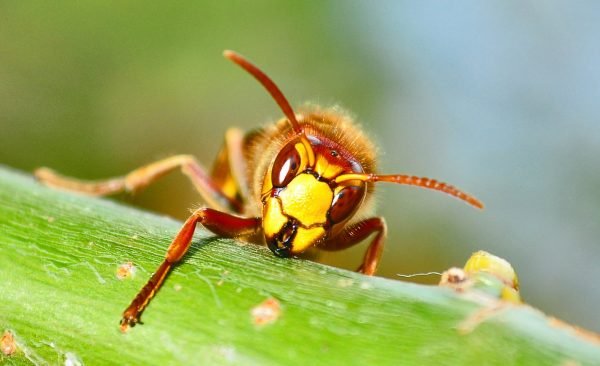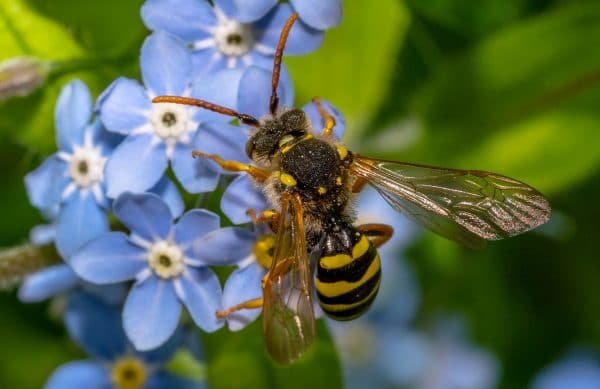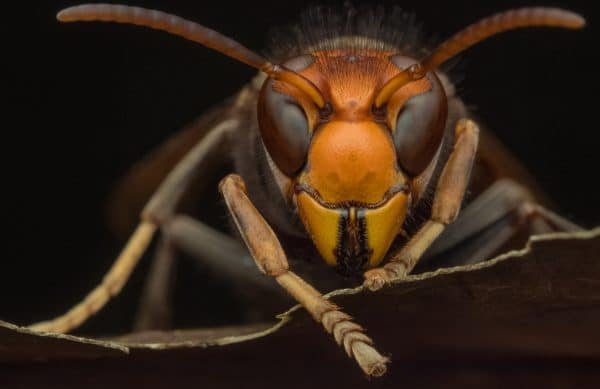Hornets, Wasps, and Yellowjackets
You may have come across these pests while outdoors – perhaps you’ve even been stung a time or two. Everyone who has had an experience with these creatures are likely to agree that hornets, wasps, and yellowjackets can pose a great risk to your general comfort and ability to have fun outdoors. However, even fewer people know exactly how dangerous these insects can be.
But, before we dive into that, let’s cover the basics. What is there to know about these stinging nuisances?
Hornets and yellowjackets are both members of the wasp family. In addition, these insects are frequently confused with their more easygoing counterparts: bees. Yellowjackets are frequently misidentified as bees due to the similar yellow and black pattern that exists on their exoskeleton. It’s important to distinguish that this is not the case because wasps, hornets, and yellowjackets are all significantly more aggressive.
Wasps
The term “wasp” is actually quite generic and can be used in reference to a variety of different insects. However, when referring to an insect as simply “a wasp,” it is likely that the speaker is referencing one of two insects: mud daubers or paper wasps. Mud daubers are fairly easy to identify given the nests they build; all of which are made of mud. These are typically found in lesser-trafficked areas such as the walls of a garage, roof eaves, or tucked under a gutter.
Paper wasps are also made easier to identify because of their nests. These are made from a variety of plant fibers and dead wood, which the wasp mixes with its saliva to create a material that’s paper-like in appearance. These wasps are far more aggressive than mud daubers due to their territorial nature and will attack if they feel the least bit threatened. Stings from paper wasps are quite painful and can lead to anaphylactic shock in those who are allergic to their venom.
Hornets
Hornets have similar body shapes to their traditional “wasp” counterparts. In the state of Michigan, the most common species of hornet is known as the “bald-faced hornet” and is made identifiable by the prominent white mark on its heads. This species can be found in rural and urban locations throughout the state.
Like paper wasps, hornets build nests using the same primary ingredients (plant fibers, dry wood, and saliva), producing a paper-like substance. However, unlike their wasp counterparts, hornet nests can grow considerably in size. In addition, hornets are extremely aggressive and may attack with or without provocation. As a result, they are one of the more dangerous stinging insects. You can often find hornet nests hanging from tree branches and/or shrubs.
Due to the more aggressive nature of hornets, it is highly recommended that – should you come across a hornet’s nest on your property – you consult professionals right away. Nest removal should be taken care of by pest management specialists only.
Yellowjackets
While considered part of the “wasp” family, there are many species within the umbrella term “yellowjacket.” One of the more common yellowjackets in the state of Michigan is called the German yellowjacket and has a tendency to build intricate hives up to 12 feet in length. These hives are frequently made in flat, vertical sections of dry wall, and are typically found after the yellowjackets have already chewed through the dry wall to enter into the main living area of a home.
Eastern yellowjackets, named for their proximity to the northeastern United States, can collectively build a hive of up to five thousand members. While this is certainly impressive, it can also be very dangerous when considering that yellowjackets – like hornets – are often very aggressive when provoked. And, unlike the previously mentioned stinging insects, can carry bacteria on their stingers that they picked up from manure, landfill, and even sewage. When stung, this could lead to blood poisoning.
So now you know all the ways these insects can be dangerous, but what can you do to keep your family safe from harm? Call Presidio Pest Management. Our team of experienced experts have dealt with hornets, wasps, and yellowjackets again and again, so we know exactly how to handle your case. It’s very important that you do not try to remove these nests yourself, as (like we previously mentioned) the outcome can be as severe as death. Instead, let the trained professionals help. Simply give us a call and schedule your free inspection today!




